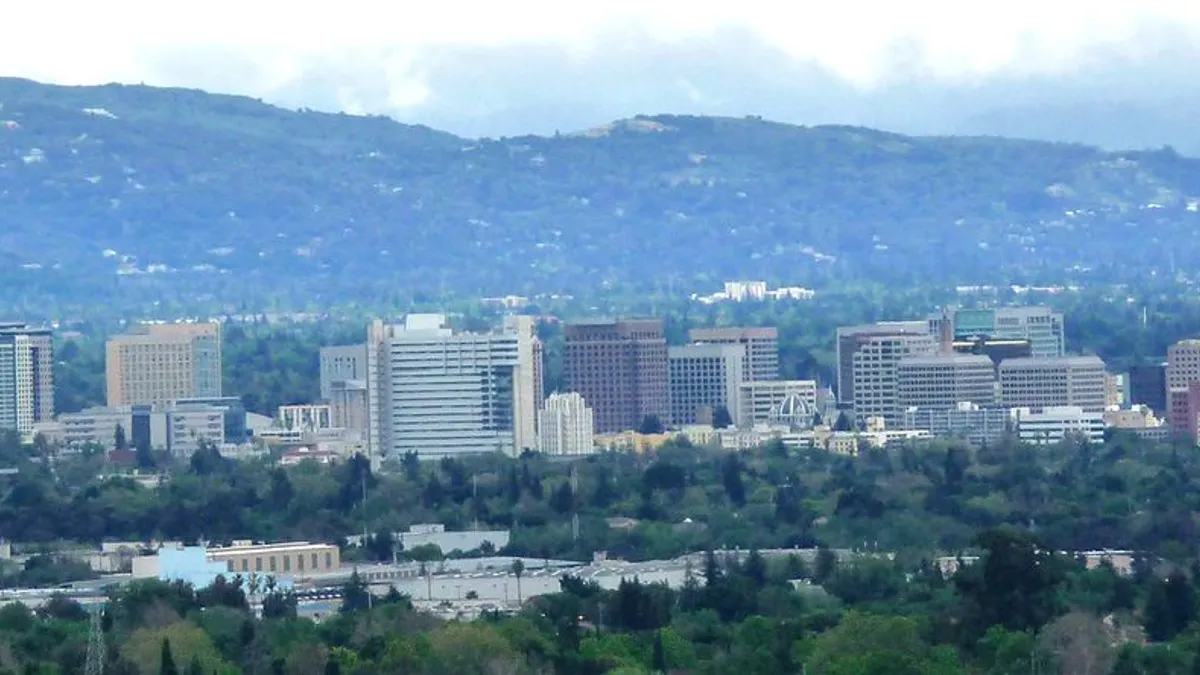Dive Brief:
- San Jose, CA has reached a tentative deal with AT&T to allow the carrier to install about 170 small cell devices on the city's light poles.
- The device deployment will help AT&T improve current wireless voice and data coverage, improve the quality and coverage of the FirstNet emergency responder network and support the introduction of 5G technology in the future.
- The San Jose City Council will consider the proposal, which states that the city will receive $5 million in lease revenues from AT&T over the next 15 years, at a meeting next week.
Dive Insight:
San Jose adopted a Broadband and Digital Inclusion Strategy in the fall as part of its overall Smart City Vision. The digital inclusion strategy highlights the benefits of using a public-private partnership (P3) model for technological infrastructure build-out. Notably, partnerships with the private sector can get the necessary infrastructure built faster and more affordably.
The digital inclusion strategy also focuses on closing the digital divide and ensuring that all residents have ample access to new technology. In keeping with that idea, the city says the tentative small cell agreement with AT&T will provide residents with more choice, better coverage, better quality and more equitable access to next generation services, including in underserved communities.
San Jose has been cautiously rolling out other smart city infrastructure, such as the smart street lights that were approved last year. The city didn't rush into that decision and ended up only approving a limited area, one-year pilot for the devices, in large part due to privacy concerns surrounding the technology. Leaders were wary to adopt data collection technology considering the city does not have a data or privacy policy in place.
Interestingly, the announcement of the agreement with AT&T downplays the potential for the small cells to ease the way for bringing 5G to San Jose, even though the devices are well-known to be a critical element of 5G networks. They vastly boost network density, capacity and coverage at a rather low cost. For now, San Jose primarily is touting the benefits that small cells can bring to customers' existing service and to the city's Internet of Things (IoT) connectivity.
Even with this small cell deal, San Jose has not been named as one of the cities in which AT&T expects to roll out 5G this year. However, that doesn't necessarily mean it won't be one of the first 5G cities. Thus far, AT&T has only named three cities — Atlanta, Dallas and Waco, TX — out of the 12 it expects to have connected with mobile 5G by the end of this year.











